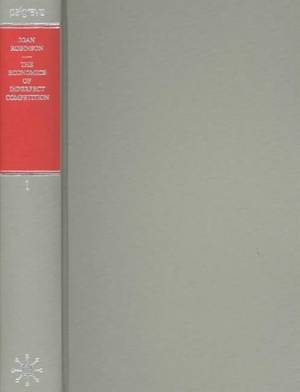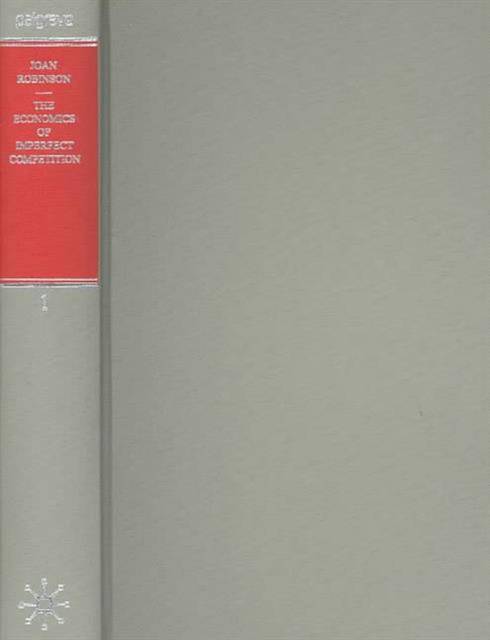
Bedankt voor het vertrouwen het afgelopen jaar! Om jou te bedanken bieden we GRATIS verzending (in België) aan op alles gedurende de hele maand januari.
- Afhalen na 1 uur in een winkel met voorraad
- In januari gratis thuislevering in België
- Ruim aanbod met 7 miljoen producten
Bedankt voor het vertrouwen het afgelopen jaar! Om jou te bedanken bieden we GRATIS verzending (in België) aan op alles gedurende de hele maand januari.
- Afhalen na 1 uur in een winkel met voorraad
- In januari gratis thuislevering in België
- Ruim aanbod met 7 miljoen producten
Zoeken
€ 1.921,45
+ 3842 punten
Omschrijving
Joan Robinson was one of the most prominent economists of the century. She made fundamental contributions to many different areas of economic thought. She studied economics at Girton College Cambridge, graduating in 1925. During the 1930's she published three books and participated in Keynes 'Circus'. Her early contributions to economics were extensions of neo-classical theory, and in 1933 she introduced the theory of imperfect competition. She became an ardent follower of Keynes and produced expositions of his theory. She was one of the first economists to take Marx seriously as an economist. She became Reader in Economics at Cambridge in 1956, and in the same year she published The Accumulation of Capital - in which she began to extend Keynes theory, in particular to take into consideration long-run issues of growth and capital accumulation. Her work on growth theory in 1962, alongside Nicholas Kaldor, led to them developing the Cambridge Growth Theory. She became the first ever female Fellow of Kings College, Cambridge in 1979. This collection of her writings is an excellent testament to the depth and breadth of the impact she had on economic theory as a whole.
Specificaties
Betrokkenen
- Auteur(s):
- Uitgeverij:
Inhoud
- Aantal bladzijden:
- 2363
- Taal:
- Engels
Eigenschappen
- Productcode (EAN):
- 9780333977071
- Verschijningsdatum:
- 19/12/2001
- Uitvoering:
- Hardcover
- Formaat:
- Genaaid
- Afmetingen:
- 138 mm x 216 mm

Alleen bij Standaard Boekhandel
+ 3842 punten op je klantenkaart van Standaard Boekhandel
Beoordelingen
We publiceren alleen reviews die voldoen aan de voorwaarden voor reviews. Bekijk onze voorwaarden voor reviews.









